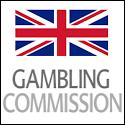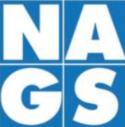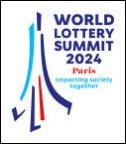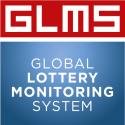Advertising for (Online) Gambling in Germany – Current Developments
Munich, Germany (May 2023) — The State Treaty on Gaming 2021 represents a paradigm shift in terms of regulating advertising for games of chance and has abolished the general ban on advertising and the separate permission requirement of the previous State Treaty. Instead, the promotion of approved gambling offers is allowed. The achievement of the goals of the state treaty – in particular the protection of players and minors, but also the channelling of the play instinct in an orderly way – should be ensured by the legal regulation of § 5 GlüStV 2021 and the advertising ancillary provisions of the permit. In the event of violations by the license holders, the Joint Gaming Authority of the Federal States (GGL) can impose supervisory measures and fines on the license holders. Against this background, the following article is intended to provide an insight into the latest developments.
Fine against the licensee for affiliate marketing
Affiliate marketing is a type of online marketing in which companies advertise their services (or products) through partners known as “affiliates”. A commission is paid to the partner if they mediate a purchase or other desired action by the customer. This usually works like this: the affiliate promotes the company’s product or service on their own website, social media channel or other online channels. In doing so, he places a special link or an advertising banner on his site, which forwards the user to the company’s offer. If the user accesses the company’s website via this link and performs a desired action (usually registering with the gambling provider),
This is exactly where Section 5 (6) sentence 1 GlüStV comes in:
“For advertising for games of chance, in which blocked players are not allowed to participate according to § 8 paragraph 2, on the Internet, in particular in the form of affiliate links, no variable, in particular turnover, deposit or stake-dependent, remuneration may be agreed or paid.”
The actual design of affiliate marketing is regulated in more detail in the ancillary provisions to the organizer permits. There it says:
“The third parties commissioned with the advertising are – especially in the case of online advertising on third-party sites – obliged to comply with the statutory provisions and the provisions of this notice. The obligations – especially in the case of affiliate marketing – must be passed on to those responsible for the individual advertising.”
“All advertising content (text, image, sound, moving images) of the license holder on the websites of affiliate partners must be clearly marked as such. This does not apply to independently created editorial content by the affiliate, such as reports on comparison portals. When calling up the website, a reference to the remuneration of the affiliate in the event of registration with the gambling providers shown is clearer and more easily perceptible
shape and size to appear. The duration of the display of the notice must be such that an average user is able to fully absorb this information.”
and
“Affiliate marketing is only permissible under the condition that the affiliate’s website only links to gambling offers from organizers who are in possession of a corresponding license under the 2021 State Gambling Treaty.”
The GGL refers to a violation of the last-mentioned ancillary provision when it imposed a fine on a permit holder for the first time ( https://www.gluecksspiel-behoerde.de/de/news/245-ggl-verhaengt-erstmalig-ordnungstraffickkeitsbescheid-in- five-digit-amount-against-permission-holder-due-to-violations-of-advertising-regulations ).
The topic throws an interesting spotlight on the question of where permit holders can best draw attention to their offers. According to the GGL, the intention of the State Treaty on Gambling was to “ guarantee player protection by strictly separating legal from illegal offers ”. On the other hand, the providers are likely to be of the opinion that players who are already interested in gambling get information on these affiliate sites and comparison portals and that these websites are therefore particularly well suited to drawing attention to the offers of permitted providers.
Legal Proceedings Against the Advertising By-Laws
In 2022, the first licenses for virtual slot machines and online poker were granted. In addition, new licenses for sports betting were granted “at the last minute”. While the two areas are inherently different, they now have an almost identical extensive catalog of around 30 different regulations/restrictions on advertising.
It is no secret that the current advertising restrictions, as contained in the licenses for virtual slot machines, online poker and sports betting, are not a product of the now responsible GGL, but still go back to the Gambling College.
It is still uncertain how the new supervisory authority will position itself in the long term and whether it will seize the opportunity to correct the current advertising restrictions if necessary. It was obviously the wish of the Gaming Board that the GGL understands the current ancillary provisions on advertising as an important pre-design for the interpretation of Section 5 GlüStV for a decision-making guideline on advertising.
Considerable changes in the catalogue of advertising restrictions are to be expected, particularly with regard to the current total ban on certain forms of advertising. Currently, it seems to be a task for the courts to legally assess regulations such as the total ban on out-of-home advertising, advertising for free-to-play offers, influencer marketing and cooperation with streamers.
In the case of influencer marketing, there is already a first clue from the Hamburg Administrative Court (decision of December 20, 2022 – 14 E 3058/22). Although the parties involved agreed on the completion of the proceedings on this point, the court felt compelled to comment on this as part of the decision on costs.
The most important finding from this decision is certainly that the supervisory authority must recognize that the new State Treaty on Gaming has brought about a fundamental change in gaming law: the Düsseldorf Administrative Court (judgment of May 10, 2022 – 3 K 4295/19) spoke in a decision from the year 2022 by a caesura; the administrative court in Hamburg is now talking about a ” fundamental systematic change in the advertising regulation”.
The current decision was made in connection with the ancillary provisions of a license for a social lottery. However, it is also of great importance for operators of virtual slot machines, online poker and sports betting.
Because the advertising provision can also be found verbatim in the current licenses for online gaming providers. The reasoning behind it is also identical. The ancillary provision is justified by the fact that the advertising content cannot be influenced. This means that the operator can no longer be guaranteed that the requirements for advertising in the GlüStV and in the ancillary provisions of the corresponding license will be met. Because with influencers, it is not just about fulfilling the contractually promised advertising content, but also, to a very considerable extent, about achieving attention and resonance in consumer and business circles. The ban on influencer marketing can be derived from the limitation requirement or the prohibition of excess and the requirement of objectivity in accordance with Section 5 (2) sentence 2 GlüStV.
“With the aim of ensuring the protection of minors and endangered gamblers in particular, the ancillary provision number 5.n. pursues a legitimate purpose. However, the regulation is due to the “basic systematic change in advertising regulation” associated with the State Treaty on Gaming 2021 – like the Respondent rightly describes the new regulation – not suitable for achieving the purpose. It is also not necessary to achieve this purpose. […]
Against the background of the requirements for advertising for permitted gambling according to Section 5 (2) GlüStV 2021, it should be disproportionate – as the respondent also argues in the result – to prohibit advertising by influencers across the board even if the advertising is from the owner of the permit , and therefore the respondent here, is “scripted” and controlled and is thus fully attributable to the license holder. The opinion of the respondent that the term “influencer marketing” should be narrower than the term “popular science term of influencer” is not accessible to the court (cf. Troge, Challenge: Influencer-Marketing, GRUR-Prax 2018, 87 , 87; see also Henning-Bodewig, Influencer Marketing – the “Wild West of Advertising”, WRP 2017, 1415, 1415; Lehmann, Risks of competition law in influencer marketing, WRP 2017, 772, 772f.; Mallick/Weller, Current developments in influencer marketing – a look at practice, WRP 2018, 155, 155f.). A conceptual distinction between influencer and influencer marketing based on whether the influencer’s activity is based on a manuscript cannot be inferred from general usage. So-called “influencers” are understood to be bloggers in social networks who, thanks to a large number of so-called “followers” (users who follow them in the respective social media channel), have a large reach and for advertisers because of their credibility and their target group-specific influence are interesting (Troge, loc.cit., 87; sa Henning-Bodewig, loc.cit., 1415; Lehmann, loc.cit., 772f.; Mallick/Weller, loc.cit., 155f.).
[…]
Irrespective of these “conceptual misunderstandings”, the ancillary provision, Item 5. k. also – like the ancillary provision clause 5. n. – due to § 5 para. 1 sentence 1, 2 GlüStV 2021 not be necessary, since the holder of a permit according to § 4 GlüStV 2021 already third parties by operation of law only with the implementation of the advertising, but not commissioned with the unauthorized design of the advertising. There is no need for a further ancillary provision, which is intended to make the same provision in the end and only allows advertising measures with influencers if they are based on a manuscript checked by the license holder.”
In addition, the court decided on another provision, namely the obligation to pass on the advertising restrictions to all third parties commissioned with the advertising, in particular to affiliated companies.
If the GlüStV already does not allow the license holder to leave the design of the advertising completely to third parties because it is fully attributable to the license holder, there is no need for the ancillary provision in question. If the license holder were to give a third party scope for advertising in violation of Section 5 (1) sentence 2 GlüStV 2021, the gaming supervisory authority can take effective action against the license holder. The ancillary provision at issue is therefore already not suitable for achieving the goal of promoting the fight against gambling addiction. It is also not necessary because the gambling supervisory authority – should be the license holder contrary to § 5 para.
The decision is not binding on the Administrative Court of Halle, where most court cases involving online gambling operators are decided. However, it is a strong indication that the current restrictions on advertising will not remain in place – this applies in particular to the undifferentiated total bans on some forms of advertising.
outlook
Advertising will continue to be a particular focus of the new Joint Gaming Authority – not only in enforcing advertising for illegal gambling but also in supervising licensed offerings. The current total bans on certain advertising media are already under bad omens, as the most recent decision by the Hamburg Administrative Court shows.
It will be particularly interesting to see how the GGL will continue to position itself on the supervision of advertising for permitted gambling offers. In addition, it can be assumed that the courts will make their first judgments on the legality of the ancillary advertising provisions in the course of 2023.
Article By: Attorney Yannick Skulski (Salary Partner At Hambach & Hambach Rechtsanwälte).
SOURCE: Hambach & Hambach Rechtsanwälte (TIME Law News).
Tags: Germany, online gaming, Advertising






























